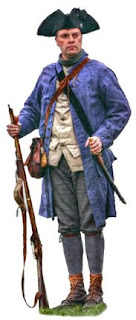Many Loyalists opposed the British taxes, they felt that the crown most be obey.
They feared that the resistance was not ready to fight.
And in summer of 1774 John Adams a Patriot was walking down a street with Jonathan Sewell a Loyalist and Jonathan Sewell told John Adams that the British will take action against the resistance and John Adams answer to this was that the colonists were determined to keep this way and that nothing will change their point of view.
They feared that the resistance was not ready to fight.
And in summer of 1774 John Adams a Patriot was walking down a street with Jonathan Sewell a Loyalist and Jonathan Sewell told John Adams that the British will take action against the resistance and John Adams answer to this was that the colonists were determined to keep this way and that nothing will change their point of view.











%5B1%5D.jpg)